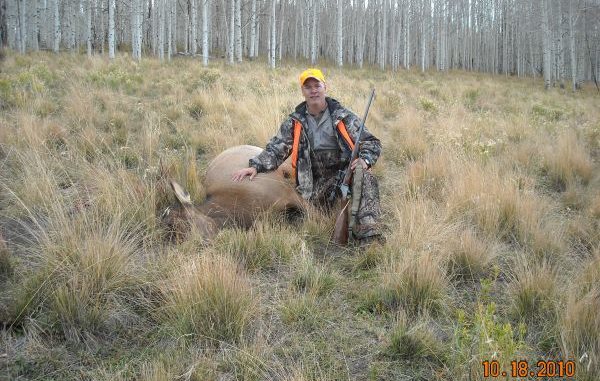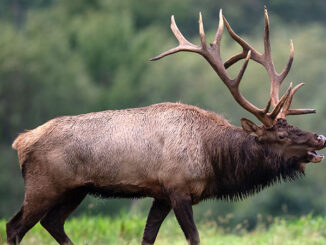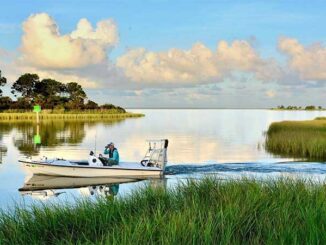
An out-of-state hunt could land you in trouble
Well, here we are in August, the last month of summer. Even though it is still an oven outdoors, we are already thinking about hunting season and making plans to enjoy those glorious fall days.
For many, the fall season will include an out-of-state trip. Some will travel to the northern states or even Canada for spectacular waterfowl hunting or to the Midwest for trophy whitetails. Others will head farther west for pronghorn, mule deer and elk.
The opportunities and adventures are limitless.
So if you are like me, and planning a hunt in another state this fall, take the time to become familiar with regulations applicable to every aspect of your hunt, including all those new and unnecessary firearms possession and transport regulations that seem to be popping up in the most-surprising places.
Even though you, as a law-abiding hunter and sportsman may be very familiar with the regulations in your own state, different laws may apply in other places. For example, hunter education certifications are required in Louisiana for anyone born after Sept. 1, 1969. In many states, however, the requirement goes all the way back to hunters born in the ’40s or even earlier. I know of quite a few hunters who, unaware of that fact, traveled all the way to Colorado, before discovering they were ineligible for over-the-counter non-resident licenses without a hunter safety card.
Transporting a loaded firearm in a vehicle may be legal in your home state, but prohibited elsewhere. Certain calibers, action types and rifles legal for hunting deer at home also might be prohibited in other states.
And did you know dividing meat from harvested game among the group before going your separate ways only requires handwritten possession tags in some states like Louisiana, while in other states — Wyoming for example — a special transport tag obtained from a state warden or license vendor is required?
These are just a few examples of regulations that could result in a very unpleasant surprise for a non-resident hunter who doesn’t do his homework.
The best way to avoid unintentional violations is to obtain a copy of the state’s general hunting regulations booklet and read it carefully. I know that might be a little boring, but it is every bit as essential to planning your hunt as sighting in, getting in shape and packing the right gear.
I recall a case in point from several years ago. Fellow wildlife agent and good friend Kelly Fannin and I were planning a Colorado hunt with a couple of buddies who were in other lines of work. Kelly and I had both read the Colorado regs and brought copies with us.
We had a great hunt, and our friends were both bringing home trophy heads and capes, along with meat. One of the guys had a really nice mule deer buck.
Kelly and I made sure they were in complete compliance with the Colorado regulations before we hit the road home. At Raton Pass on Interstate 25, we encountered a big, multi-state wildlife enforcement checkpoint.
We were directed to parking spots in a rest area, where a team of agents conducted interviews and performed complete compliance checks. We checked out perfectly, and my partner with the trophy mule deer walked over, looked Kelly and me in the eye and said a heartfelt “thank you.”

Kelly and I then had a nice visit with our western brother officers. I had met Russ Pollard, chief enforcement officer from Wyoming previously. Russ described a multitude of violations discovered during checkpoint operations. Many were due to ignorance of the law, carelessness or simple disregard of the regulations.
If you are going on a guided or outfitted hunt, reputable people in those professions should steer you clear of trouble. This will be my third trip with my Colorado outfitter and good friend Roy Hutt. Roy is a stickler for the regulations, and makes that very clear to everyone the night before the first day’s hunting. I wouldn’t have it any other way.
But don’t rely completely on the outfitter. You are the hunter and ultimately responsible for your own actions. “The outfitter said it was OK” won’t get you anywhere with the wildlife officer.
We are a little shy on wilderness areas and remote backcountry here in the Bayou State, and I’ll wager very few of us are packing our meat on our backs. So if you are headed off on a walk-in or horseback-only hunt, check local regulations thoroughly.
Is camping confined to designated camping areas? Are specific food storage or food scrap disposal rules in effect due to bears? Some of the wilderness areas require taking out everything brought in, and I mean everything.
Another aspect to backcountry walk-in hunts is meat transport. All edible portions must be transported out, and the meat comes first. Famed archery hunter Chuck Adams wrote an article for the May/June Rocky Mountain Elk Foundation’s Bugle magazine titled “Elk Care from Field to Freezer.” In the article, Adams pointed out that in some elk hunting states “it is illegal to carry out antlers or cape before your last load of meat.”
We flatlanders just aren’t that familiar with such regulations.
Finally, lets go back to the ridiculous and confusing array of new firearms possession and transport laws the anti-gun crowd has successfully established in some states.
Much to my surprise, I discovered Colorado now bans magazines that hold more than 15 rounds. No, that does not apply to the rifle I’ll be using to hunt this fall, but it does apply to the self-defense weapon I usually carry in the vehicle on road trips.
So don’t forget to check those state regulations, as well, before hitting the road. The best source I know of is the 2013 “Traveler’s Guide to the Firearm laws of the Fifty States.” (www.gunlawguide.com) A copy sells for $13.95 and includes regulations for Canada and Mexico.
So plan that out-of-state hunt carefully, and look forward to it with as much excitement and anticipation as I do. Maybe we’ll meet on the trail or share a hot cup of coffee around the campfire.

